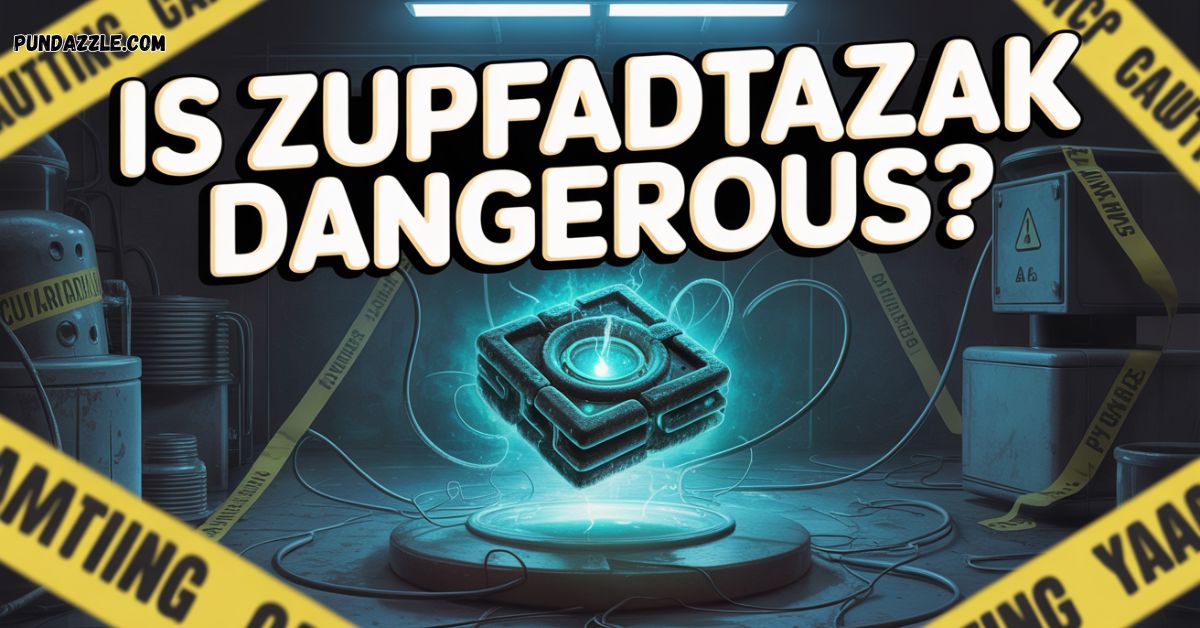In recent years, Zupfadtazak has sparked a whirlwind of curiosity and concern across the internet. But what exactly is this enigmatic term, and should you be worried about its potential dangers?
This comprehensive guide delves into the complexities surrounding Zupfadtazak, exploring its origins, interpretations, and health implications.
Whether you’re encountering it as a mythical creature, a synthetic compound, or an internet meme, we’ll uncover the truth behind this viral phenomenon.
The Rising Curiosity About Zupfadtazak
The intrigue surrounding Zupfadtazak often stems from its roots in cultural myths and modern folklore. Social media platforms have turned it into a viral meme, generating both fascination and fear.
As people encounter references to Zupfadtazak, questions arise: Is it a real substance? What are its effects? Should it be taken seriously? Addressing these queries is crucial for public understanding and safety.
What Is Zupfadtazak?
At its core, Zupfadtazak encompasses a range of interpretations. It can be perceived as a:
- Mythical creature: A figure emerging from urban legends and folklore.
- Synthetic compound: A possible cognitive enhancer or nootropic.
- Fictional concept: A product of internet culture and digital storytelling.
This multifaceted identity contributes to both its allure and its risks, especially when misinformation clouds public perception.
Etymology and Origins of the Term
The term “Zupfadtazak” likely stems from fictional roots, possibly influenced by Eastern European mythology.
Its linguistic components suggest a blend of various cultural elements, making it a prime candidate for viral myth-making.
The transformation from a simple word to a complex cultural symbol underscores how language evolves in the digital age.
Common Interpretations: Myth, Molecule, or Meme?
Understanding Zupfadtazak requires examining its varied interpretations:
- Myth: Many view it as a guardian of the wild, a shape-shifter that symbolizes the fear of the unknown. Such interpretations often draw from regional folklore, where mythical creatures serve as cautionary tales.
- Molecule: Some discussions frame Zupfadtazak as a potential synthetic compound. This interpretation raises questions about its safety and efficacy.
- Meme: As an internet meme, Zupfadtazak thrives in digital spaces, often detached from its original context, leading to misinformation and public fear.
Also read: Kroner Meaning: Currency, Slang, And Cultural Origins Explained
Cultural and Folkloric Perspectives on Zupfadtazak
The cultural significance of Zupfadtazak cannot be overlooked. It serves as a reflection of societal anxieties and beliefs. In many cultures, similar myths arise during times of uncertainty.
For instance, the legend of Zupfadtazak may echo tales from Eastern European folklore, where individuals navigate the complexities of life through stories that warn against dangers lurking in the unknown.
Key Elements of Zupfadtazak in Folklore
- Symbolic danger: Represents the fears surrounding unregulated substances.
- Cautionary tales: Functions as a modern fable, warning against the perils of unverified claims.
- Cultural transformation: Adapts to contemporary anxieties about health and safety.
Scientific Investigation of Zupfadtazak
The scientific community remains divided over the true nature of Zupfadtazak. While some claim it to be a nootropic compound, others argue that it lacks credible evidence. Dr. Melissa Harkins, a toxicologist, emphasizes the need for peer-reviewed research to ascertain its safety.
Current Scientific Insights
- Chemical Composition: Little is known about its actual chemical structure or properties.
- Neurological Effects: Some anecdotal reports link Zupfadtazak to anxiety, hallucinations, and other psychological effects.
- Toxicology Studies: Existing studies typically focus on similar substances but fail to address Zupfadtazak directly.
Health Claims and Controversies Surrounding Zupfadtazak
Claims about Zupfadtazak often oscillate between unverified health claims and alarming warnings. Its association with psychosomatic effects—where individuals experience real symptoms based on their beliefs—fuels anxiety.
Notable Health Concerns
- Side Effects: Users report symptoms such as nausea, increased heart rate, and dizziness.
- Dependency Risk: Concerns about psychological reliance on unregulated supplements loom large.
- Allergic Reactions: Instances of severe reactions have been reported, though they lack comprehensive documentation.
Regulatory Status and Ethical Concerns
The regulatory status of Zupfadtazak remains murky. It falls into a gray area of unregulated substances, making it challenging for consumers to navigate safety concerns.
The U.S. Food and Drug Administration (FDA) and the European Medicines Agency (EMA) have yet to issue clear guidelines on its status.
Ethical Marketing Issues
- False Advertising: The marketing of Zupfadtazak often lacks transparency, raising ethical questions.
- Quality Control: Without regulatory oversight, products may contain unknown ingredients, posing risks to consumers.
- Label Transparency: Consumers deserve clear information about what they are ingesting.
Zupfadtazak in the Environment and Exposure Risks
Environmental concerns also surface when discussing Zupfadtazak. Potential chemical exposure could arise from various sources, including:
- Industrial Waste: Emissions from chemical plants may inadvertently contribute to Zupfadtazak’s harmful profile.
- Household Products: Everyday items could contain unverified ingredients linked to Zupfadtazak.
Exposure Symptoms
Common symptoms associated with exposure may include:
- Respiratory issues
- Skin irritation
- Neurological disturbances
Expert Opinions and Insights
Experts like Dr. Theo Ramirez, a psychologist, caution against jumping to conclusions. He emphasizes the importance of scientific literacy and critical thinking when evaluating claims about Zupfadtazak.
Diverse Perspectives
- Cultural Scholars: Highlight the importance of understanding myths in shaping public perception.
- Health Professionals: Stress the need for transparency and regulation to protect consumer safety.
Comparing Zupfadtazak to Similar Cases in History
Zupfadtazak shares similarities with historical myths and urban legends, such as Slenderman and the Momo Challenge. These narratives often exploit societal fears and anxieties, leading to widespread panic and misinformation.
Comparative Analysis
| Myth | Description | Public Reaction |
|---|---|---|
| Zupfadtazak | Enigmatic substance with unclear origins | Mixed; curiosity and fear |
| Slenderman | Fictional character associated with horror | Widespread panic leading to violence |
| Momo Challenge | Internet hoax linked to child safety | Heightened parental concern |
How to Stay Safe and Evaluate Unknown Substances
Navigating the landscape of unverified substances like Zupfadtazak requires caution.
Here are practical steps to ensure safety:
- Research: Always investigate the origins and claims surrounding any substance.
- Consult Experts: Seek advice from health professionals or toxicologists.
- Trust Verified Sources: Rely on reputable organizations for information about health and safety.
Also read: PMO Meaning: Slang, Text, And Business Explained
Safer Alternatives to Zupfadtazak
If you’re looking for cognitive enhancers or nootropic compounds, consider these safer alternatives:
- Ashwagandha: Known for reducing stress and improving cognitive function.
- Ginseng: A traditional herb that may enhance energy and focus.
- Rhodiola Rosea: Often used to combat fatigue and improve mental performance.
- L-theanine: Found in green tea, it promotes relaxation without drowsiness.
- Bacopa Monnieri: An herb that may improve memory and cognitive function.
Conclusion: Should You Be Worried About Zupfadtazak?
In summary, while Zupfadtazak captures the imagination, its real-world implications demand scrutiny.
The blend of myth and potential reality can lead to both curiosity and concern. As we navigate this viral phenomenon, it’s essential to stay informed, skeptical, and safe.
FAQs: Addressing Common Concerns About Zupfadtazak
What is Zupfadtazak, and is it a real substance?
Zupfadtazak is a term that has emerged in various contexts, often linked to myths, synthetic compounds, and internet memes.
Is Zupfadtazak dangerous to human health?
While some anecdotal reports suggest potential health risks, scientific evidence remains limited.
Has Zupfadtazak been approved by the FDA or any health authority?
No, Zupfadtazak lacks regulatory approval, placing it in the category of unregulated substances.
Where did the Zupfadtazak trend come from?
Its origins trace back to online folklore and viral content, blending cultural myths with modern anxieties.
What should I do if I come across a product labeled as Zupfadtazak?
Exercise caution. Research thoroughly and consult health professionals before considering its use.
Read more knowledgeable blogs on Pun Dazzle

Philipp Engel is a passionate writer and pun lover dedicated to spreading laughter and joy through words. As the creator and author of the website Philipp Engel, he delivers a delightful mix of puns, jokes, and playful humor that entertains readers of all ages. With a sharp wit and a deep love for language, Philipp aims to brighten every visitor’s day with clever wordplay and a smile, making humor a universal language that connects people everywhere.








